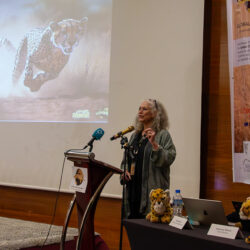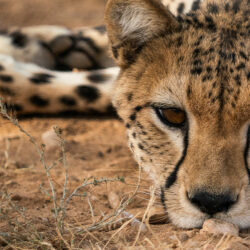Earth Day 2019 Message from Dr. Laurie Marker
-
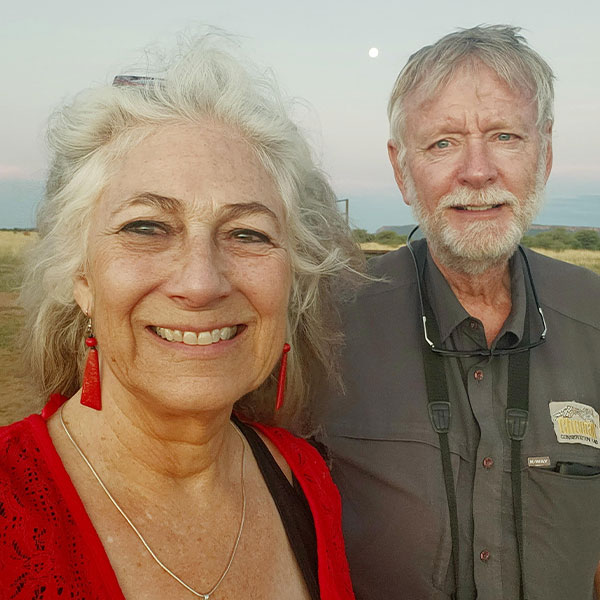
- by Dr. Laurie Marker April 22, 2019
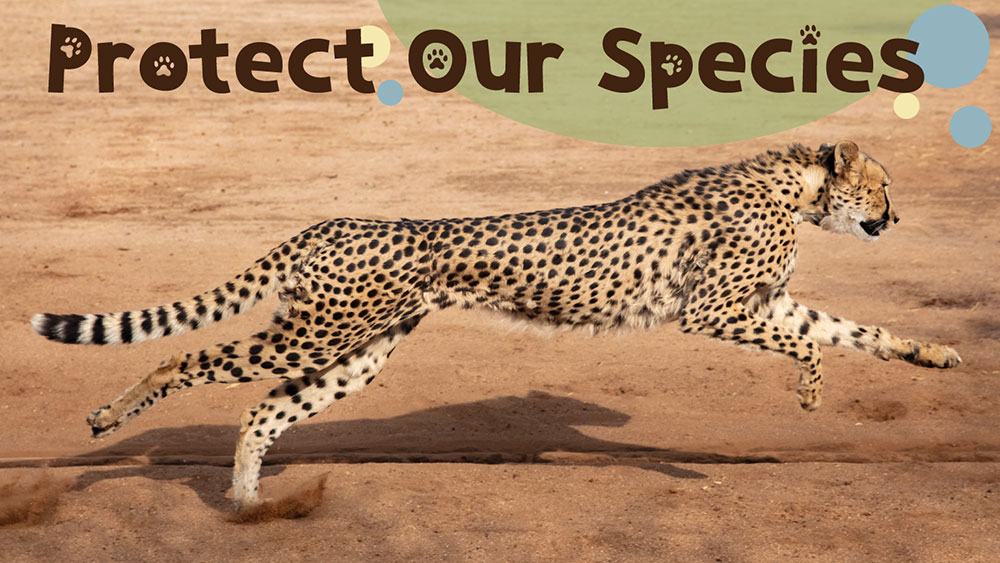
Banner photo by Jennifer Leigh Warner
Protect our Species! The theme of this year’s Earth Day celebration is incredibly meaningful to me. Protecting the cheetah and its ecosystem is what I’ve spent the majority of my life working towards. Along the way, I have benefited from the help of many passionate people who supported my work and believed in what Cheetah Conservation Fund could accomplish. I am so thankful for all we have been able to achieve together.
Earth Day has always been a touchstone day for me. It is one of the moments throughout each year when I am reminded to pause and take stock of where CCF is in our mission to save the cheetah in the wild. I stop to consider the actions we’ve taken toward saving the species, where we can make improvements and how we can continue to help celebrate our organization’s successes. It is also a day for me to renew my own strength of purpose, to guide CCF through the difficulties we regularly face.
Each year, Earth Day organizers introduce a celebration theme to focus messaging and highlight the efforts of scientists, conservationists, educators and philanthropists around the world. Declaring a theme for the celebration helps create unity for the day, which I have noticed has expanded to also encompass the weeks before and after April 22nd! At CCF, we used the same idea when we declared 2019 to be the Year of the Livestock Guarding Dog – the 25th anniversary celebration of CCF’s LGD program.
To highlight this year’s Earth Day theme, two of the most iconic African species have been featured on the Earth Day website along with a list of other species and broad classifications of organisms like trees, plants and birds. Elephants and giraffes are widely appreciated for their beauty and strength. Children can easily recognize and name them at a very early age. Their likeness commonly appears on every product marketed to kids across the world. Without conservationists working to help save African animals in the wild, children may one day only be left with the illustrations in their story books or the designs on their water bottles.
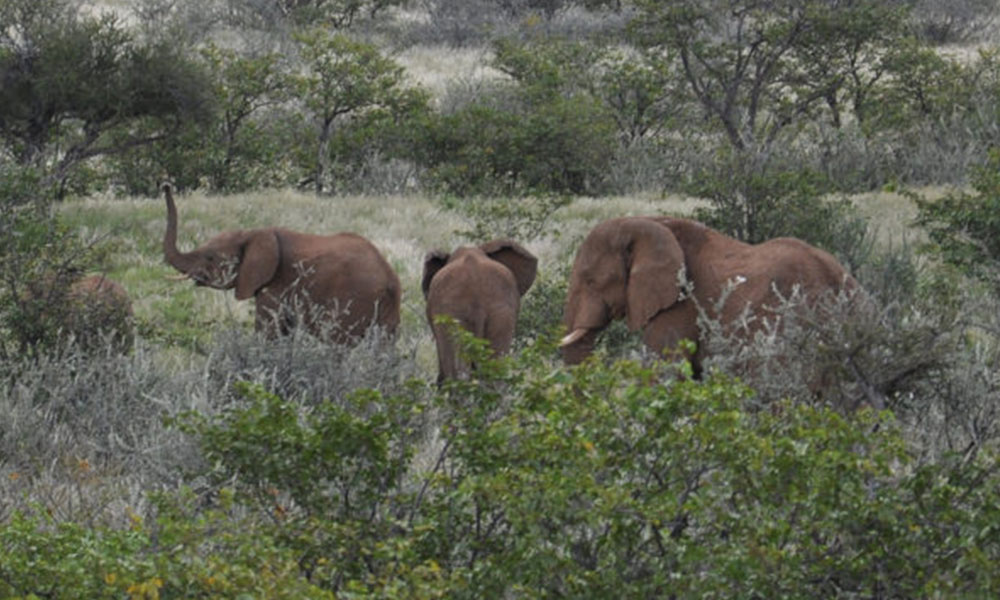
African elephants have been on endangered species lists for over 40 years. In countries across southern Africa including Namibia, elephant populations are not as threatened as they are within the remainder of the continent. Regionally, on responsibly managed land, elephant populations have stabilized. Taken out of context, the data for these elephant populations makes it appear that the species is no longer in trouble. This is incredibly frustrating to conservationists. Stabilizing species populations on a regional level can create a false sense of security when regional success is taken to mean widespread success. When a species is seen as being stable, support can drop off. As the alarm bells become silent, steam leaks from the engine and conservation efforts stall. In 2004, the African elephant was downlisted from endangered to vulnerable on the IUCN Red List. In the years that followed, elephant poaching began to grow again at an alarming rate.
African elephant populations correlate with cheetah populations in that they have stabilized in overlapping geographic areas. If Namibia’s cheetah population was replicated across the species’ historic range, CCF could proudly announce that the cheetahs’ future was secure. However, the cheetah is currently extinct in over 20 countries and of the 31 populations in the remaining 23 countries where cheetahs are found, 20 of those populations are less than 100 individuals. While we celebrate our victories, we need to remember the battle for the species’ survival has not yet been won, as today’s world population of cheetahs is less than 7,500 cheetahs.
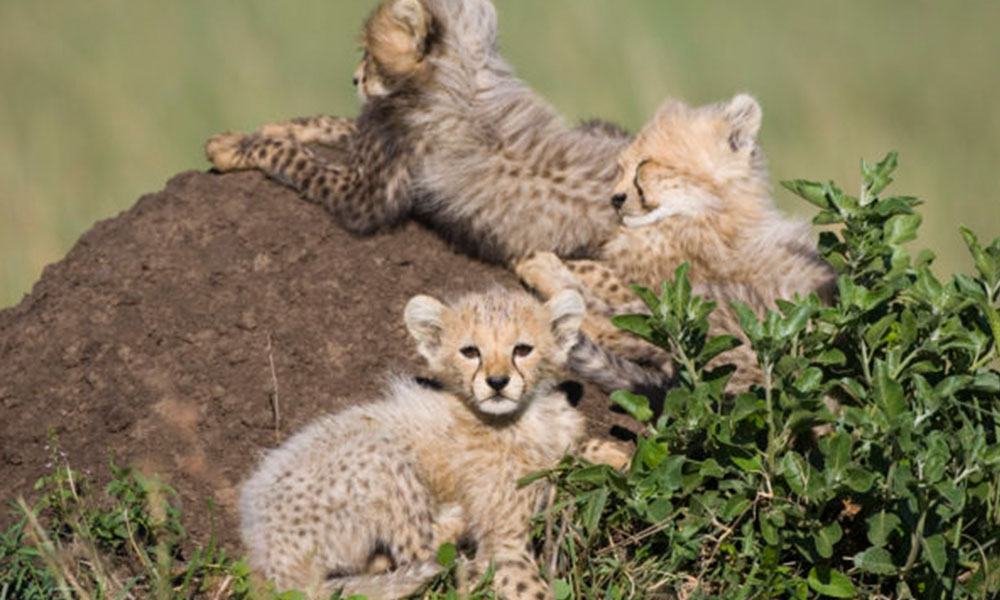
In the lead up to this Earth Day, as I travel through the United States and Canada, I keep remembering what a relief it was around 10 years ago, when we first realized that the population of cheetahs was stabilizing in Namibia. It was as a result of the hard work of a lot of people from all around the world, and it was one of my most appreciative moments. I was thrilled with the farmers who agreed to meet with me and agreed to try CCF’s predator-friendly livestock management techniques. I was overjoyed with the thousands of students who had come to CCF and who our educators had visited – all so eagerly interested in learning more about the natural world around them. I was grateful for the politicians who heard the cry for conservation from their people, and decided to value natural resources, not only in monetary terms but as an intrinsic part of their national identity.
However, I knew that with this deep satisfaction and sense of achievement also came with the potential for a fall. I knew that the population of cheetahs across the rest of Africa was continuing to dwindle. I knew that what was happening with the African elephant would also happen with the cheetah, and I knew that we could not afford to falter in our overall mission even as we celebrated our success. In the years since, maintaining Namibia’s population has continued but it is a constant struggle.
Please help me to spread a message on Earth Day. We must continue to celebrate our conservation successes and communicate our accomplishments to the world. We must also remember that if we let our guard down, we may lose everything we have worked so hard to build over so many years. We cannot let that happen. Please help support conservation efforts on Earth Day, we must continue to protect our species.
Related Reading
-
February 7, 2024
Dr. Laurie Marker’s Opening Speech at the Global Cheetah Summit -
November 15, 2023
Double Your Gift – Home Range for the Holidays 2023

